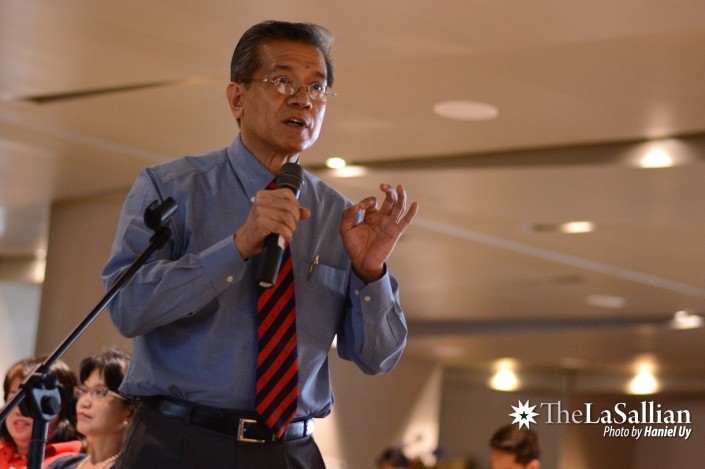The Academics Council held a presentation and open forum on the New Lasallian Core Curriculum (NLCC) last July 25 at the 5th floor Multipurpose Room of the Henry Sy Sr. Hall. The event focused on the NLCC’s framework, its design and implementation, and syllabi formulation. Dr. Raymund Sison, the Associate Vice Chancellor for Academic Affairs, led the presentation.
New Lasallian Core Curriculum
As of press time, the framework of the said curriculum has been approved by both the Academics Council and President’s Council, and discussions about NLCC’s implementing guidelines and syllabi design are still in the works.
The core curriculum’s framework is composed of virtues and competencies tailor-fitted for an ideal 21st century learner. Generally, the NLCC components follow the general education courses mandated by the Commission on Higher Education (CHED) in its Memorandum Order No. 20 series of 2013, along with courses added by the University.
Improving student learning
The Academy for Lasallian Formation will act as the implementing body of the NLCC. It is committed to improving student learning and to contributing research work on higher education teaching through the Scholarship of Teaching and Learning (SoTL).
Dr. Sison clearly emphasized in the open forum that the Academy aims for the betterment of teaching skills and learning outcomes in the University.
Questions on the need for forming the Academy and other concerns regarding faculty appointment and SoTL work were raised in the open forum.
No place in the NLCC?
Per recent CHED zonal consultations, proposals were raised regarding the state of Filipino as a medium of instruction and as a general education (GE) course. The new core curriculum will allow any course to be taught in Filipino, but it wouldn’t require additional Filipino subjects to the current lineup of GE courses.
In the open forum, faculty members from the Filipino department strongly argued the importance of teaching Filipino not only for the benefit of students but also for nation building purposes. Moreover, they seek to have at least three units of a Filipino core course in the NLCC, however, accomodating the request of the Filipino professors will entail the reopening of the NLCC according to Sison.
The University will shift to the NLCC in the academic years 2016-2018.

